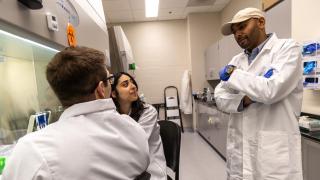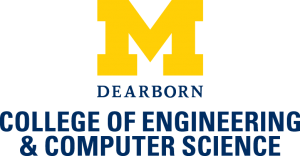

Chakraborty’s research with Somnio Global L3C’s Maridass Balasubramanian will look into developing scaffolds—artificial structures that support tissue formation—that can be injected with living cells and then preserved for future application as a single unit.
Traditionally, freshly collected or previously preserved cells are seeded onto the scaffold. Preserving the whole assembly as a single unit simplifies the process.
The simplified preservation could aid in medical applications like skin replacement in burn patients.
“It has been demonstrated that the healing process can be accelerated if the scaffolds are seeded with skin cells,” Chakraborty said. “Using the technology we are using, we can create skin scaffolds with skin cells already seeded and in that way will reduce the procedural complexity of treating burn patients.”
Ghosh’s research will focus on making bioactive scaffolds, which could aid in bone tissue regeneration. Engineered bone tissue is a promising technique for repairing bone defects.
“Diseases like arthritis and osteoporosis affect tens of millions of people worldwide every year. And those numbers are expected to increase with the aging Baby Boomer population,” Ghosh said.
Bone cells need minerals to grow, but simply adding minerals to the scaffold often leads to uneven distribution of the materials. Advanced Technologies of Michigan (ATOM), under the guidance of Swaminathan Ramesh, has developed a tool to improve distribution. Ghosh will use the tool to disperse minerals into the scaffold and then investigate their physical, mechanical and biological properties.
Chakraborty’s and Ghosh’s collaborations are two of eight research projects chosen to receive a Small Company Innovation Program (SCIP) grant through the Michigan Corporate Relations Network (MCRN).
“The partnership benefits us both, and we are looking forward to working on this highly synergistic project,” Chakraborty said. “We are excited about its potential.”
The potential of the project is what drew the interest of SCIP. SCIP awards matching funds to small and mid-sized companies to help stretch business funds during early stages of product development.
“Not having access to resources can be a serious barrier to innovation for small businesses,” said Amy Skehan, director of UM-Dearborn’s Business Engagement Center. “MCRN universities like UM-Dearborn are working to provide research support, expertise and facilities to these businesses to help get to commercialization faster.”




